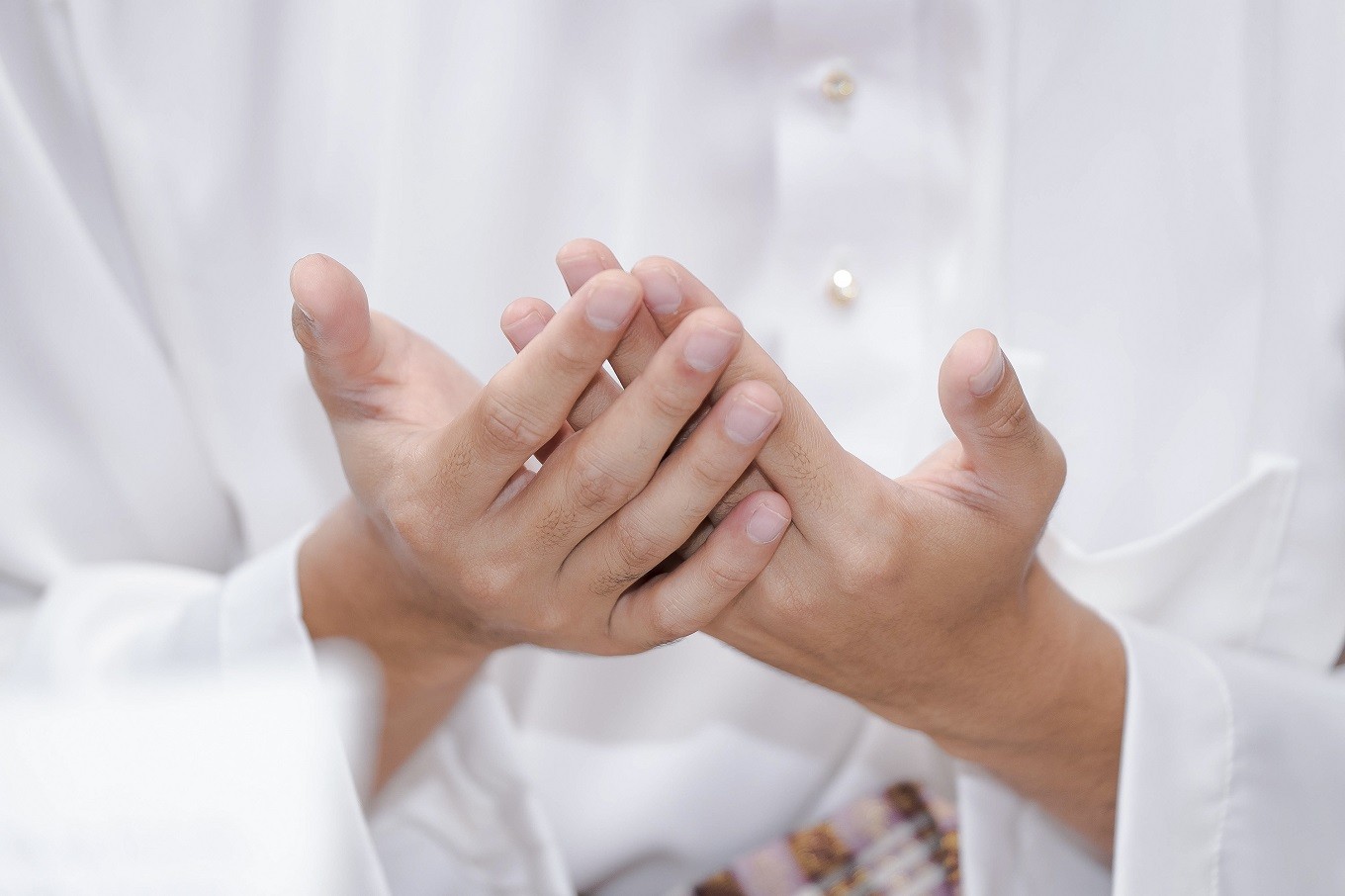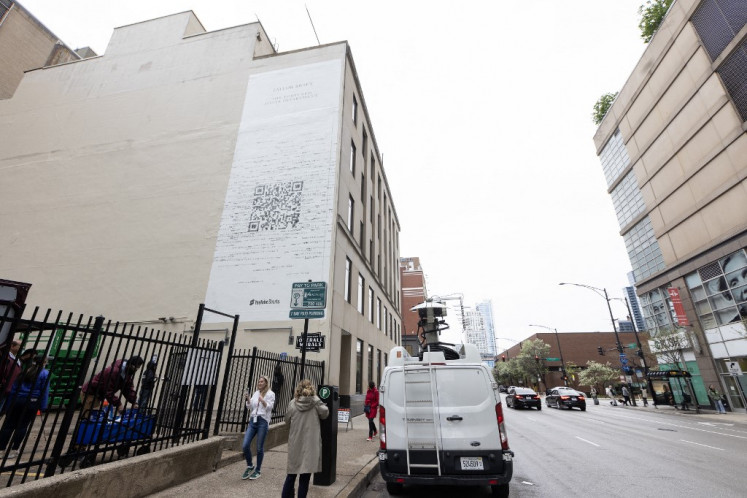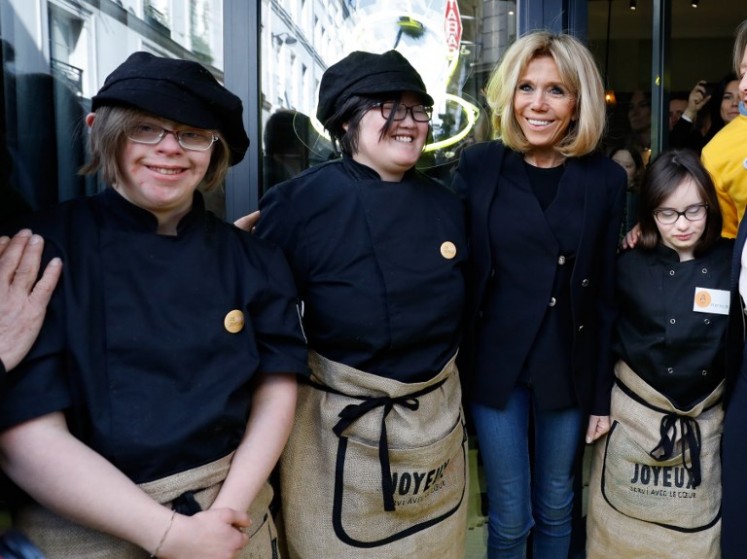Home and abroad, Ramadhan offers chance to return to middle ground
Many Indonesians have been forced to rethink what is wrong with their country after recent events.
Change Size
 During the holy Ramadhan fasting month, Muslims are required to abstain from eating, drinking, smoking and sexual intercourse from dawn until dusk. (Shutterstock/*)
During the holy Ramadhan fasting month, Muslims are required to abstain from eating, drinking, smoking and sexual intercourse from dawn until dusk. (Shutterstock/*)
I
woke up at four o’clock in the morning last Saturday to have my first predawn meal of sahur to mark the first day of Ramadhan here in the United States, when my email inbox buzzed with a breaking news notification. Two Good Samaritans had been fatally stabbed in Portland, Oregon, while trying to confront a man who shouted anti-Muslim slurs at two teenage girls on a train .
Safe to say that this is not the kind of news you want to hear when you’re starting your first Ramadhan abroad.
The rise of right-wing radicalism, long a fringe feature of American society but now empowered anew, has reshaped political and social discourse. Their improbable upsurge has enormous consequences: the Portland train stabbings were only the tip of the iceberg. Below the surface is the continuous fear-mongering targeting refugees and immigrants coming from the Muslim world, resowing modern Islamophobic sentiments that had shaded parts of American society since the 9/11 attacks.
The classic dogma of “us” versus “them”, now packaged and labeled under slogans like “Make America Great Again”, is slowly channeling the fear of outsiders into an endless abyss of divide.
But I should never call my concerns impartial if I wasn't paying attention to what is happening at home in Indonesia.
Like most Americans, many Indonesians have been made to rethink what is wrong with their country after recent events. The diversity of religion and ethnicity in our country, the largest Muslim-majority democracy in the world, was recently put to the test after the divisive controversies surrounding now-disgraced Jakarta governor Basuki “Ahok” Tjahaja Purnama, and his so-called blasphemy trials.
Read also: Secrets to a rejuvenating Ramadhan experience
The controversies stuck in the heart of our identity as a nation. It pitted people of different opinions against each other in a way that could hurt our young democracy.
It bears too much resemblance with what happened in the United States after the November 2016 election, when people passionately defended their choice of either Republican Donald Trump or Democrat Hillary Clinton in a way that often made them completely isolated in different alternate realities.
Both events, in the US and Indonesia, created a new kind of radical, right-wing force that filled the vacuum and plunged society as a whole farther away from the middle ground.
As a Muslim, I used to think of -- and was often told to defend -- Islam as a religion of peace. I don’t think that this is relevant anymore.
Now I like to think of Islam as a religion of moderation, where all public and personal things are proportionally and moderately put in their places. Your politics should be balanced with your personal life, your well-paying job should be balanced with helping the poor.
As the Prophet himself once said, as recorded by Bukhari: “You have a duty to your Lord, you have a duty to your body, and you have a duty to your family, so give each one its due.”
If Islam is a religion of moderation, Ramadhan is a microcosmic representation of it.
In its truest original meaning, Ramadhan is the month of “scorching heat” and “dryness”. It is 30 days of training in a lifestyle of restraint, four weeks of no eating, drinking, smoking and even cursing from dawn to dusk. Some say it will give you perspective on how poor people manage to survive all year long; some say it is just another way to lose weight.
Read also: Tips on attending an 'iftar' event for first-timers
But I am more interested in exploring how Ramadhan can return society into a middle ground of peace and compromise. Prophet Muhammad once told his followers in one account that the essence of Ramadhan is to “burn down” your sinful deeds accumulated in the other 11 months of the year.
This makes much sense if we look at the kind of behavior the Prophet told us to refrain from: insulting, lying, backbiting, cursing, fighting. It is essentially a month of recharging and moderating yourself, your family and your community.
Yet these five behaviors are the very ones that we saw too much of from our recent political discourse. We cannot escape a single day without seeing an endless stream of news involving rage, anger and fury from people of different backgrounds and opinions. It's like everybody is angry about everything nowadays. It is as though a respectful, moderate way of running a society or a nation is not possible anymore.
Since I arrived in the US in August last year, I had a chance to visit some nearby mosques in my city, Indianapolis. Unlike Indonesian mosques that often feel like they are macro-managed from a rigid government hierarchy, the doctrine of separation of church and state here makes possible a mosque environment of tightly knitted families and communities in which everyone knows each other.
What I saw from these mosques is that they’re always trying to be the center ground of moderation, because they realize that it is the only way to survive here. Strangers, Muslims and non-Muslims alike, are welcomed with open hands. Islamophobic attacks are responded to by knocking on doors in the neighborhood to deliver meals and gifts.
To fight radicalism, to defy intolerance, the key lies within our ability to accept people of different opinions with us and embrace a fruitful conversation with them. The spirit of Ramadhan is our chance to bring compromise, balance and moderation back to the hallways of our governments, to the chambers of our courts, and to the people in our streets.
In no balanced democracy could a Portland attack happen; in no moderate Muslim society could a radical group, left- or right-wing, grow. Hate cannot be fought with hate, it must be counterbalanced with compassion.
As Ibn Manzur, an ancient Arabian lexicographer once said in his classical Arabic dictionary Lisan al-Arab: “Every praiseworthy characteristic has two blameworthy poles. Generosity is the middle between miserliness and extravagance. Courage is the middle between cowardice and recklessness. Humanity has been commanded to avoid every such blameworthy trait.”
***
Ramzy is a high school student who loves journalism, politics and football. When he is not writing for his school newspaper or tweeting at @ramzymuliawan, he can be found watching Semen Padang, Juventus or San Antonio Spurs matches. In 2012, he co-founded the Minangkabau edition of Wikipedia, the free encyclopedia. A native of Padang, he calls Pekanbaru home. He spent a year living in Indianapolis, Indiana, as an exchange student with the Kennedy-Lugar YES Program.
---------------
Interested in writing for thejakartapost.com? We are looking for information and opinions from experts in a variety of fields or others with appropriate writing skills. The content must be original on the following topics: lifestyle ( beauty, fashion, food ), entertainment, science & technology, health, parenting, social media, travel, and sports. Send your piece to community@jakpost.com. For more information click here.









